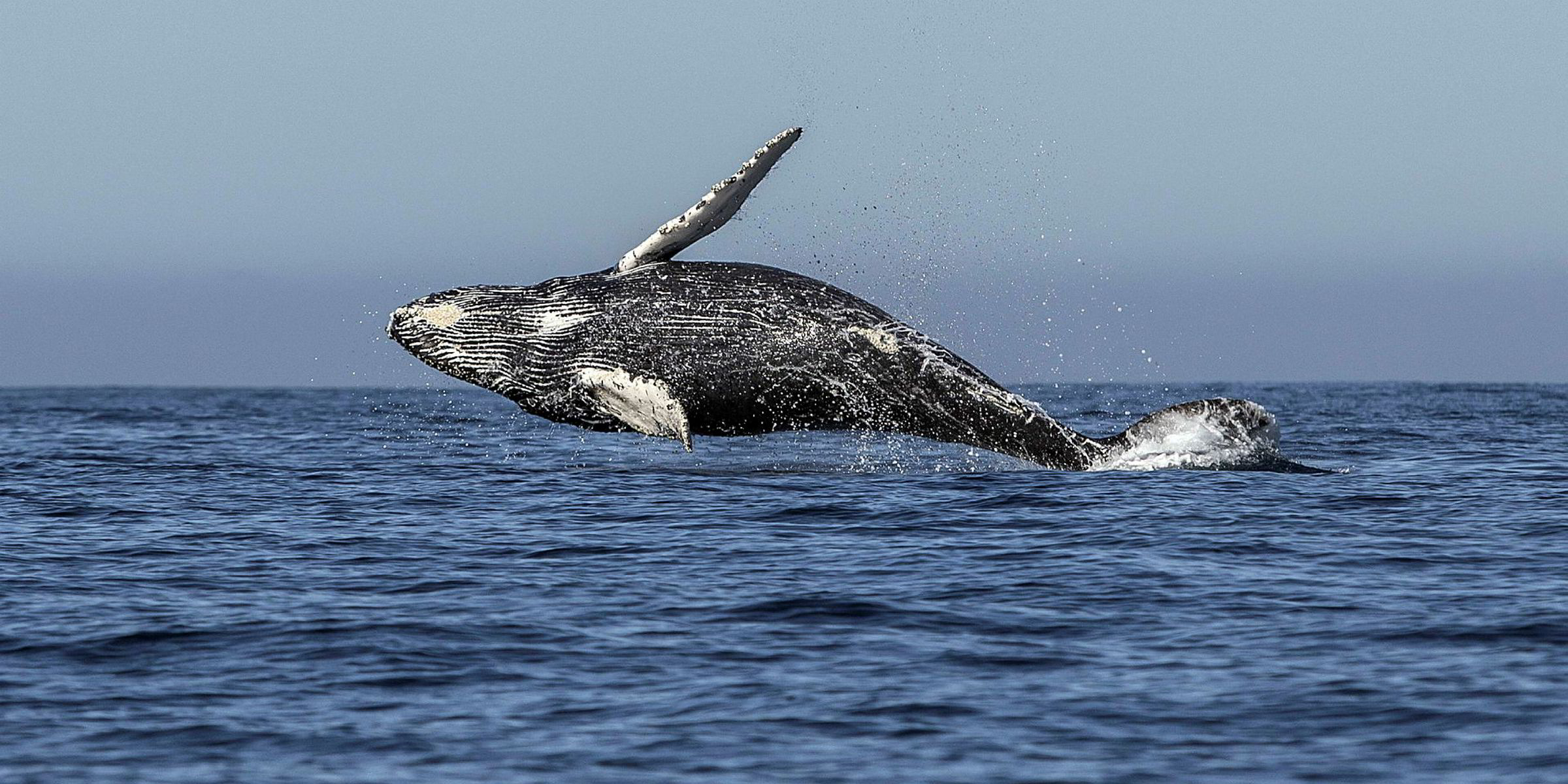Slow steaming is not only a way for shipowners to save on their fuel bills, it can help save whales.
When California enforced rules limiting vessels transiting its ports to using bunkers containing just 0.1% sulphur, researchers found the higher cost of the fuel caused shipowners to reduce speeds.
In one shipping lane along the state's coast, the US National Oceanic and Atmospheric Administration (NOAA) saw speeds drop from about 20 knots per hour in 2008 to just over 13 knots per hour in 2015.
Whale strikes
California is a major thoroughfare for whales, so its fair to surmise that there is going to be a related reduction in whale strikes, according to TJ Moore, a NOAA scientist and lead author of the study.
The reduced speeds would cut the chances of a lethal whale strike by 20%, Moore says. If ships travelled at 10 knots per hour, the chance of a lethal strike would be reduced by about 40%.
Moore's research also looked at whale strandings caused by ship strikes. He says the average number of ship-related strandings decreased from eight to three over the study period.
"We suggest that ship traffic variability could have had some role in this change, but recognise there are many factors that contribute to variability in whale strandings," he says.



